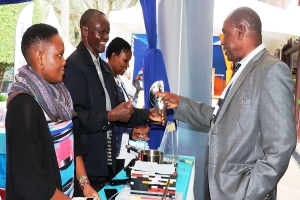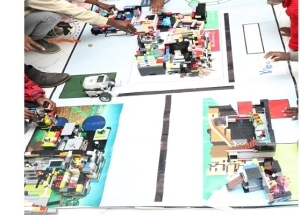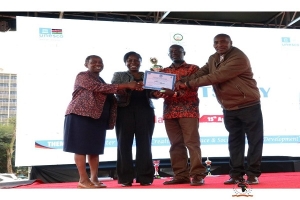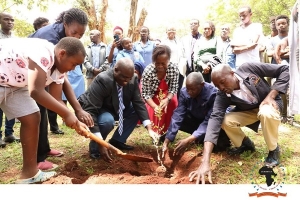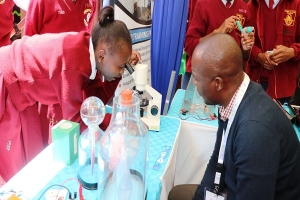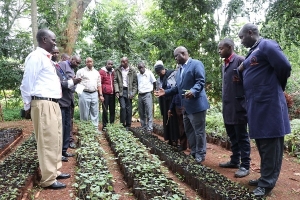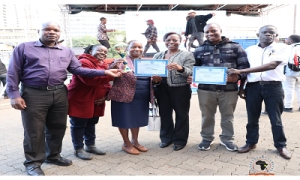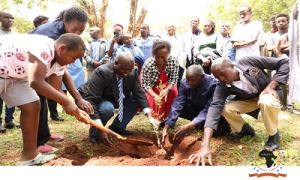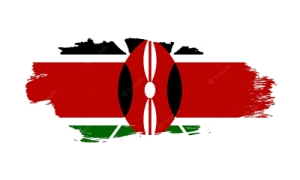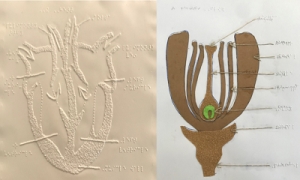Esther Nyambura
By Dan Orero
CEMASTEA 'scoop' position 1 in the Exhibition category during the Kenya National Commission for UNESCO (KNATCOM) 10th Anniversary as a State Corporation and the 4th National Cultural Celebrations held from 12th to 15th April 2023 with the theme: “A Decade of Excellence - Enhancing Development, National Cohesion, Identity and Pride” at Kenyatta International Convention Centre (KICC).
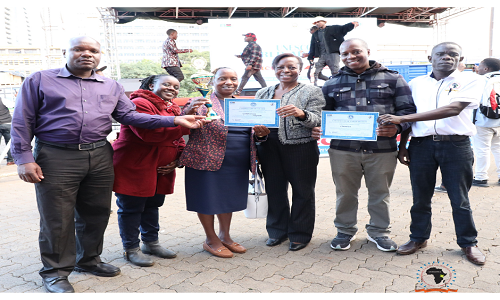
CEMASTEA staff led by the C.E.O Mrs. Jacinta L. Akatsa, HSC poses with the certificate and the trophy after the win during the exhibition
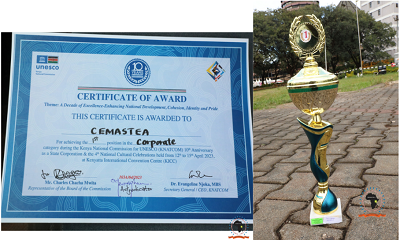
Certificate and Trophy awarded to CEMASTEA for being position 1 in the exhibition category
By Dan Orero
The Centre for Mathematics, Science and Technology Education in Africa (CEMASTEA) on Thursday April 20, 2023 joined the Karen Nyumba Kumi Initiative in a drive to increase the forest cover which is in line with the presidential directive to attain the 10% tree cover.
Speaking during the launch of the initiative at the Karen Blixen Museum, Mrs. Jacinta L. Akatsa - Chief Executive Officer of CEMASTEA affirmed that the Centre has set up tree nurseries and uses the same for donation of seedlings to schools through an outreach programme. “The tree planting and growing initiative aims at spurring a tree growing culture hence greening the country”, she added.
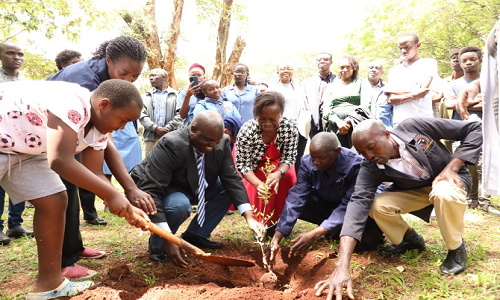
CEMASTEA staff led by the C.E.O, Mrs. Jacinta L. Akatsa, HSC
leading the team during the Nyumba Kumi Initiative tree planting event.
The chief guest during the event, Dr. Kennedy Ondimu – Director, Environmental Services at the National Environment Management Authority (NEMA) challenged the participants to also promote bamboo growing in order to help achieve vision 2030 in making Kenya a middle income economy. “The bamboo trees will not only help in addressing the devastating effects of environmental degradation but also improve livelihoods,” he noted. “Can we invest in machines to make tooth pics?” he further posed. He appealed to the youth and women to take serious the production of the nature based product.
The National Government Administrative Officer (NGAO) who was represented by the Karen area Chief not only recommended to the nyumba kumi to plant more trees with the onset of rains but also adjured them to prune old trees to prevent disaster.
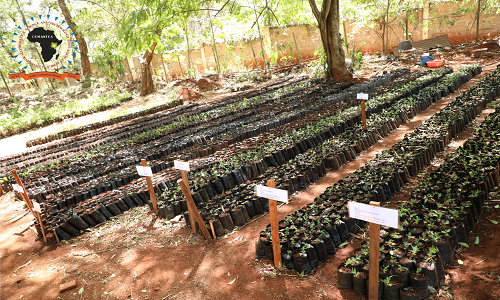
A section of a tree Nursery at CEMASTEA
By David Kireru and Pauline Njiru
Article 10 of the Kenya Constitution defines the National Values and Principles of Governance that Kenyans are expected to espouse. National values are a Nation's lasting beliefs and ideals, guiding its citizens' actions and behaviours. They define what is important and worthwhile; and what is right versus wrong. Principles of Governance are standards that oblige the state to perform its functions in a manner that promotes the general well-being of its people.
Whenever State organs, State officers, public officers and all persons apply or interpret the Constitution; enact, apply or interpret any law; or make or implement public policy decisions: they are expected to abide by these National Values and Principles of Governance. The Kenya Constitution has 17 National Values and Principles of Governance. In this Issue, we briefly explain Patriotism, National Unity and Human Dignity.
- Patriotism (Uzalendo) refers to love, loyalty and devotion shown to one's country. It calls for one's selfless services and sacrifice for their motherland by, e.g. paying taxes, protecting national resources, and working hard to build the nation. We should be proud of our brand Kenya and CEMASTEA and defend it.
- National Unity (Umoja wa Kitaifa) refers to a state of oneness which results from shared values, vision, purpose and aspirations irrespective of the ethnic, cultural, economic, and religious or any other superficial status while recognising diversity. It is a choice to work as a team tracking the challenges Kenyans face as a Nation.
- Human Dignity (Hadhi ya Binadamu) is an honour bestowed on individuals and people, and the upholding of individual rights as spelt out in the Constitution and the Bill of Rights, regardless of one's status (Article 28). It is the idea that all humans should be treated with love and respect since they are human regardless of class, race, gender, nationality, sex, education and religion.
Kindly give us your feedback using the link https://forms.gle/S2DPjwEBRNrdL4bt7
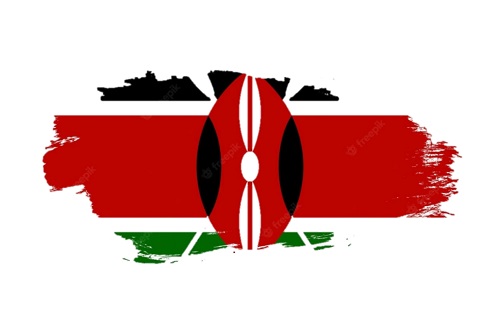
By Thuo Karanja & John Odhiambo
Inclusive educational practices are attitudes and methods, policies, values and practices that ensure all learners can access mainstream education regardless of whether they have exceptional 'labels'. In an inclusive school, everyone ensures learners feel welcome and valued and get the proper support to develop their talents and achieve their goals.
All children have a right to education. Inclusive education is the most effective way to give all children a fair opportunity to learn and develop the skills they need to thrive. However, in most contexts, learners with disabilities are often overlooked in policymaking, limiting their access to education and their ability to participate in social, economic and political life and decisions that most affect them. They are robbed of their right to learn through persistent barriers to education stemming from discrimination, stigma and failure of decision-makers to incorporate disability in school services and programmes. 
Applying the Universal learning design (UDL) forms the solution for practising inclusive education. UDL is an instructional design used to teaching and learning products, resources, methods of instruction and learning environments for all learners to the greatest extent possible without the need for adaptation or specialised design. In UDL, teachers use various teaching methods adjusted for every learner's strengths and needs and build-in flexibility that removes barriers to learning, giving all learners equal opportunities to succeed. Briefly, it is driven by three principles. Representation is where learners are offered information in more than one format. While textbooks are primarily visual, providing text, audio, video, and hands-on allows all learners to access the resources in whichever way best suits their learning strengths. In action and expression, learners are given more than one way to interact with the material and show what they've learned. Learners could choose between taking a pencil-and-paper test, giving an oral presentation or doing a group project. Engagement is where
learners can make choices and do assignments relevant to their lives and interests, including the selection and opportunities for students to get up and move around the classroom.
Janet and James are learners with hearing impairment; what strategies would a school, implement to promote inclusive education for them?
Gender-responsive pedagogy (GRP) is also inclusive practice. In the cartoon about hearing impairment, not many would consider gender as a factor in inclusive education. Gender-responsive pedagogy entails teaching and learning processes that encourage equal participation and involvement of boys and girls. It considers boys' and girls' specific interests, learning styles and needs. GRP is not just looking at how to teach but also how to address gender in lesson planning, classroom management and assessment.
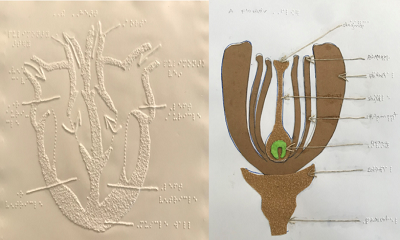
Tactile resources for teaching biology: The structure of theheart and the the flower
Other success factors for inclusive education include developing school leadership and teacher capacity to effectively implement universal design principles and inclusive psychosocial support for learners with disabilities. There is also the need for developing communities of practice to share best practices among teachers and raise community awareness on supporting children with disabilities.

